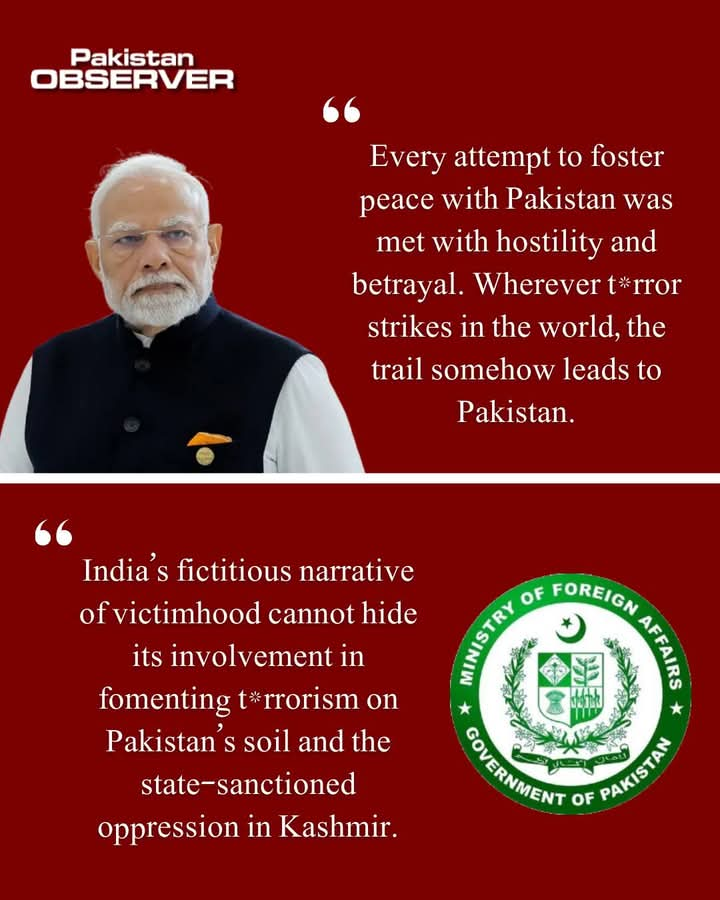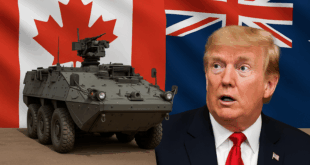Pakistan has strongly rejected Indian PM Narendra Modi’s remarks on regional peace, calling them “misleading and one-sided.”
The Foreign Office (FO) criticized Modi for ignoring the Kashmir dispute, which remains unresolved despite international commitments.
In a podcast, Modi accused Pakistan of hostility, proxy wars, and links to global t*rrorism, citing Osama bin Laden’s refuge in Pakistan.
The relationship between Pakistan and India has been fraught with tension and conflict, primarily due to long-standing disputes over Kashmir, cross-border terrorism, and historical grievances.
The dynamics of these relations are complex, influenced by political, social, and economic factors.
In recent years, there have been moments where leaders from both countries, including Indian Prime Minister Narendra Modi, have expressed a desire for peace and dialogue.
However, these appeals for peace often meet with skepticism, especially from Pakistan, which has historically rejected overtures from India when it perceives them as insincere or when underlying issues remain unaddressed.
Pakistan has frequently raised concerns about terrorism, claiming that India has been involved in supporting separatist movements within Pakistan. This has been a significant point of contention, and any discussions of peace are often viewed through the lens of these security concerns.
The Pakistani government has typically responded to appeals for peace with the assertion that India must first address issues related to alleged human rights violations in Kashmir and other regional disputes.
On the other hand, India has often accused Pakistan of harboring and supporting terrorist groups that carry out attacks on Indian soil.
This ongoing cycle of blame and counter-blame complicates any potential peace negotiations.
Pakistan reaffirmed its commitment to dialogue but blamed India’s rigid stance and hegemonic ambitions for obstructing peace.
The FO asserted that India’s anti-Pakistan rhetoric disturbs bilateral relations and must stop.
.Overall, the relationship between Pakistan and India remains fragile, and while there may be calls for peace from leaders like Modi, the reality is that significant trust deficits and unresolved historical issues continue to challenge any efforts towards reconciliation. Both nations will require sustained diplomatic engagement and confidence-building measures to foster a more peaceful relationship.
 Top Trends Blogs Trending Blogs – Latest News
Top Trends Blogs Trending Blogs – Latest News

